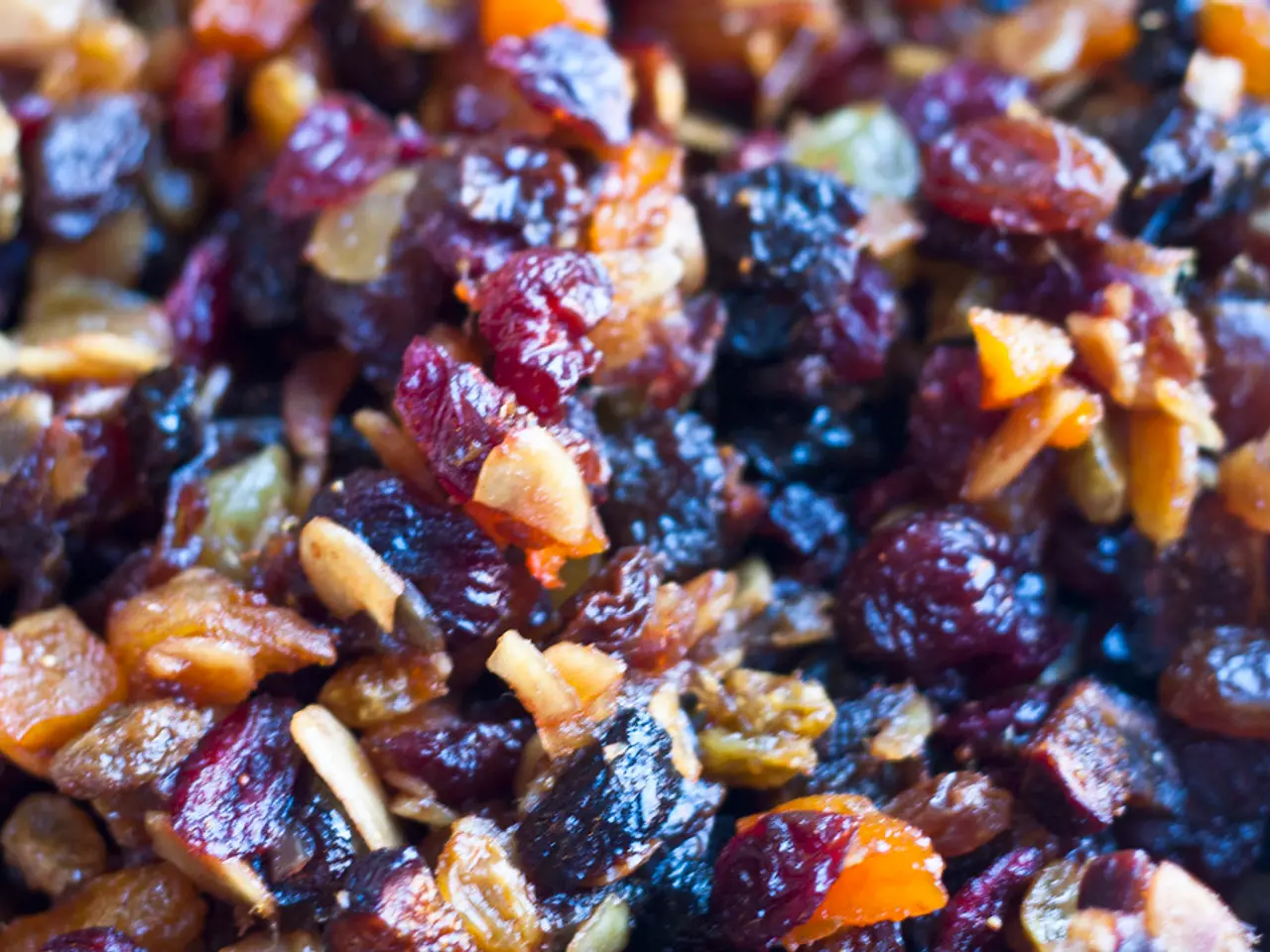Strategies for Increasing Protein Intake in Your Meals
In the realm of nutrition, protein stands tall as a crucial component for our health and wellness. The Recommended Dietary Allowance (RDA) for an average healthy adult is approximately 0.8 grams per kilogram of body weight per day, which equates to around 55 grams for a 150-pound (68 kg) individual[1][2][3][4]. This value is slightly lower for women, around 0.75 g/kg, and higher for men, about 0.84 g/kg[5]. However, many experts recommend a higher intake, particularly for older adults, athletes, or those seeking to optimize muscle health beyond just preventing deficiency[1][3][5].
Complete protein sources, containing all nine essential amino acids the body needs, are prime for supporting our dietary needs. Animal-based foods, such as lean meats (chicken, beef), eggs, dairy (milk, yogurt, cheese), fish and seafood, are excellent sources of complete protein with high biological value[1][3][5]. Plant-based options like soy (tofu, tempeh, edamame) and quinoa also make the list[5]. Combining different plant proteins, such as beans with rice or nuts, can also provide a complete amino acid profile, though no single plant source besides soy and quinoa provides all essentials alone[5].
When it comes to consuming protein, it's beneficial to distribute intake across meals, aiming for around 25–30 grams per meal, to optimize muscle protein synthesis[1][2][3]. While this distribution is useful, the total daily intake is most important.
Protein powder can serve as a quick meal replacement, especially for those on the go or as a post-workout recovery drink. However, it should not be used in addition to a meal to avoid unnecessary calorie intake and potential weight gain.
In summary, maintaining a balanced protein intake is essential for our health. Aim for around 0.8 g/kg of body weight per day, and consider spreading intake across meals. Complete protein sources, such as animal proteins, soy, and quinoa, will help support your body's needs. Other sources, like legumes, nuts, seeds, and soy products, also contribute to a balanced diet.
[1] https://www.ncbi.nlm.nih.gov/books/NBK268986/ [2] https://www.ncbi.nlm.nih.gov/books/NBK278901/ [3] https://academic.oup.com/ajcn/article/101/3/537S/5027454 [4] https://www.ncbi.nlm.nih.gov/books/NBK92762/ [5] https://www.ncbi.nlm.nih.gov/books/NBK21582/
- In the field of health-and-wellness, the latest news has emphasized the importance of maintaining a healthy diet, which includes a balanced intake of protein for optimal health.
- For those interested in weight management, paying attention to protein consumption can be beneficial, as it helps in managing weight through muscle health and a feeling of fullness from healthy diets.
- Science has shown that complete protein sources, such as lean meats, dairy, fish, soy, and quinoa, play a significant role in our nutrition, as they provide the essential amino acids needed for our bodies to function properly.
- Fitness enthusiasts might find incorporating protein supplements, like protein powder, into their fitness-and-exercise routine beneficial, as it can aid in muscle recovery and serve as a quick meal replacement when time is of the essence.




